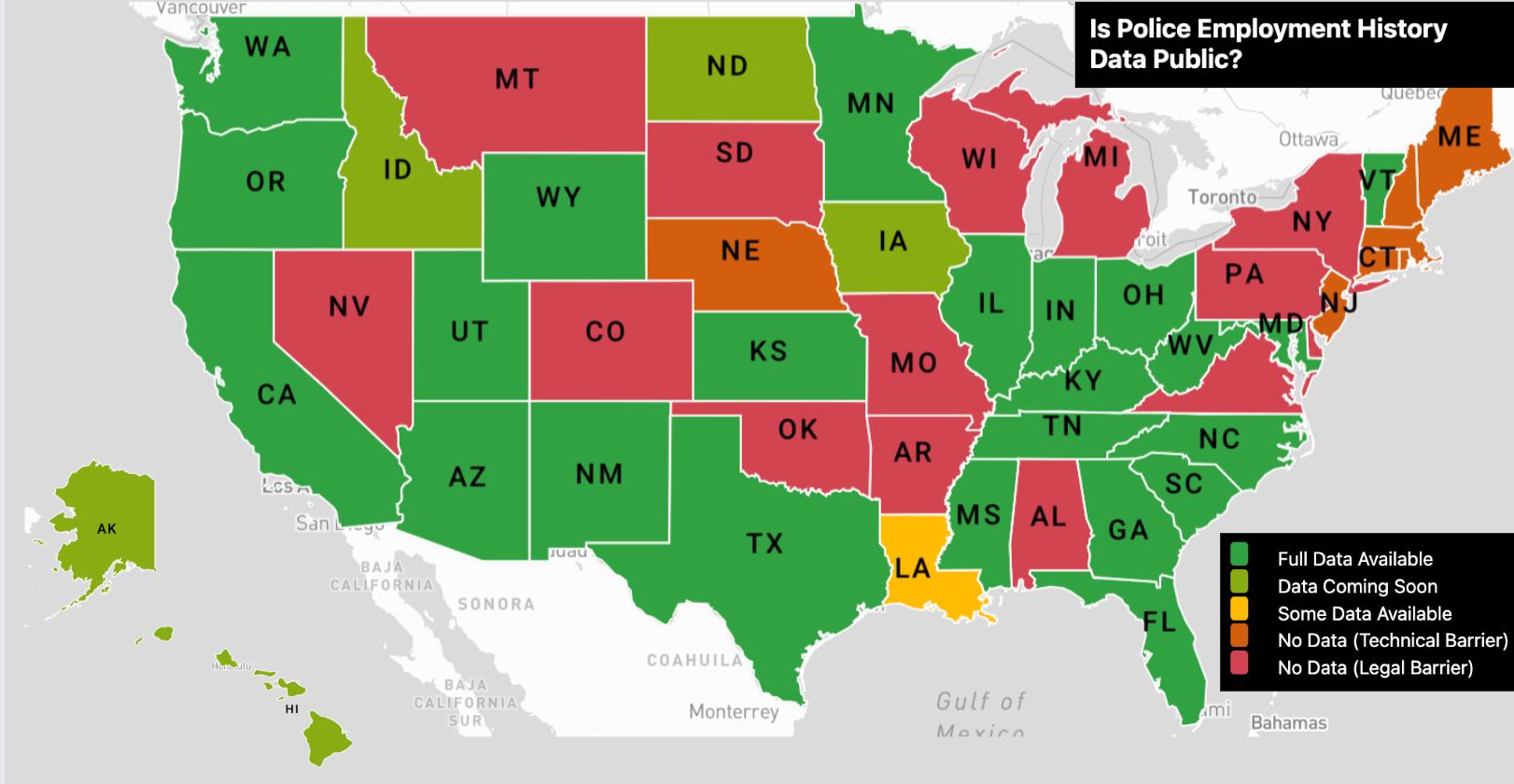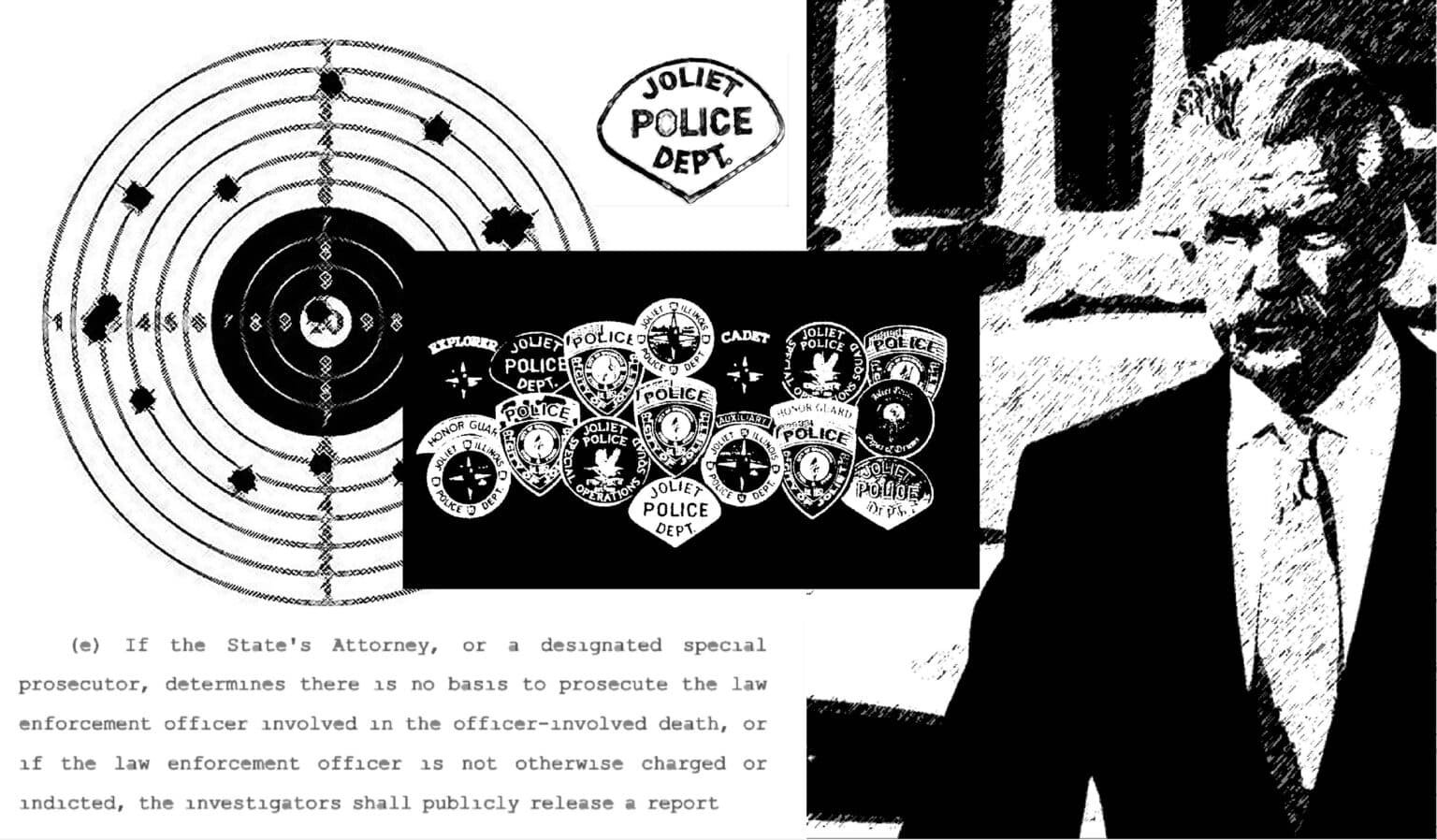Vol 3. Issue 38
National Police Index Launches Six New States
Explore the National Police Index interactive map on national.cpdp.co
National Police Index Updated to Include Six Additional States, Bringing Total to 23 States
Alongside our partners at Human Rights Data Analysis Group and Innocence Project New Orleans, we have added full employment history data for Indiana, Kansas, Minnesota, Mississippi, New Mexico, and North Carolina to the National Police Index, and updated data for Ohio and West Virginia. The National Police Index makes data on police officer employment history more accessible to the public.
Police officer employment records are critical for journalists, attorneys, and government officials, as this data can help show potential "wandering officers." Most recently we've used this data in our ongoing reporting on Sean Grayson, the officer who killed Sonya Massey in Springfield in 2024, who had records of misconduct in multiple jurisdictions and the US Army before he was hired by the sheriff.
Sam Stecklow, FOIA journalist, recently spoke on NPR Illinois’s Statewide about collecting this data from states across the country and launching the National Police Index stating, “We knew police misconduct did not end at city limits.”
Access the National Police Index here: national.cpdp.co
For more information about the ongoing fight to access this data, visit invisibleinstitute.com/national-police-index
New: Book Discussion Series
Living in Data: A Citizen’s Guide to a Better Information Future
We are planning a four session series discussing Jer Thorp’s Living in Data: A Citizen’s Guide to a Better Information Future. Save the date and register here to attend one or more of the discussions in the series. Sessions are planned for February 10, February 24, and March 10 at 6-7:30 CST (Location TBD). Each session will focus on a section of the book with the first session focusing on the first two chapters. Book sections and reflection questions will be sent out ahead of each discussion. We hope these discussions will support continued critical consumption of our work and the world around you.
We encourage you to support your local public library or bookstore.
Sam Stecklow and Chris Weber's recent reporting on Joliet, Illinois in The Times Weekly
After deaths at the hands of law enforcement in Illinois, agencies are required to “publicly release a report” if no charges are brought against the officers.
Tucked into the 174-page law is a key provision — one paragraph long — intended to dictate how law enforcement communicates to the public when police kill. Experts say vague wording in that single paragraph has resulted in a patchwork system across the state.
Of the 15 largest counties in Illinois, three appear to fail to meet this requirement: Will, Madison and St. Clair.
In Will County, in particular, there is little transparency - or consistency.
Read the article →
FOIA Fest Bootcamp deadline is approaching
FOIA Fest Bootcamp is a four-month training and mentorship program for Chicago-based reporters offered by The Chicago Headline Club and the Investigative Project on Race and Equity. Selected fellows receive training and mentoring. Fellows will independently conduct research, identify interviews, and complete pre-reporting activities needed to design and pitch their investigative projects.
Sam Stecklow has been a mentor in the past, many collaborators have been part of this program, and María Inés Zamudio co-created the training program a few years ago. Completed applications are due by January 31, 2025.
Director of Incident Interviewed in The Chicago Reader
Bill Morrison, director of Incident, spoke with The Chicago Reader about Jamie Kalven’s original reporting on the killing of Harith Augustus, the process of making the documentary, and the new collective bargaining agreement that allows Chicago Police officers to turn off body cameras and delete post-incident footage.
You can watch Incident (2023), which was recently shortlisted for an Academy Award in the short documentary category, at The New Yorker.
Nieman Lab 2025 Prediction Includes Invisible Institute
Writing for The Nieman Journalism Lab’s Predictions for Journalism, 2025, Sarabeth Berman included the Invisible Institute in “The Rebirth of Local News.” The piece discusses how local nonprofit news organizations “are changing the way we sustain local news,” and describes the potential impacts on local news when organizations like us achieve success in the form of accolades–citing the Invisible Institute and City Bureau's 2024 Pulitzer Prize wins for Local Reporting. The Nieman Lab describes itself as “an attempt to help journalism figure out its future in an Internet age.”




